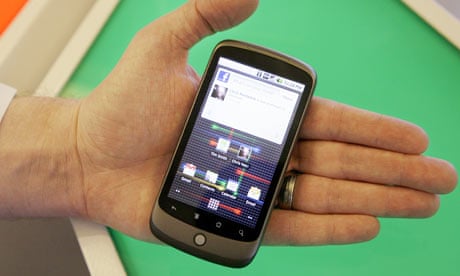Apple is suing the Taiwanese handset maker HTC, alleging that it has infringed 20 patents relating to "the iPhone's user interface, underlying architecture and hardware".
Among the patents that Apple alleges have been infringed are a number relating to touchscreen interfaces – for which the iPhone has become the best-known, though it was not the first, mobile device.
"We can sit by and watch competitors steal our patented inventions, or we can do something about it. We've decided to do something about it," said Steve Jobs, Apple's chief executive, in a statement. "We think competition is healthy, but competitors should create their own original technology, not steal ours."
It is thought that a key element that triggered the lawsuit is that in February HTC released handsets which use "pinch-to-zoom" functionality resembling that of the iPhone.
Apple has filed the suit in the US courts in Delaware, Maryland, but also with the US International Trade Commission (ITC), which has the power to halt imports of products. That would stymie HTC and Google, whose free Android mobile operating system is built into a growing number of HTC phones, and has made significant inroads into the burgeoning smartphone market in recent months.
But the move was received with surprise in the technology community. "I don't fault Apple for acquiring patents. They have to, for defensive purposes, given the current laws," noted John Siracusa, a journalist at Ars Technica who has followed Apple closely for years. "But using them offensively sucks."
The use of the ITC could be key for Apple. A recent analysis found that where lawsuits are filed both with US district courts and the ITC, plaintiffs succeed in the latter more often than the former, by 58% to 35%. That means Apple is roughly 50% more likely to win the case with the ITC – and so could block HTC imports of newer handsets.
HTC indicated that it was completely surprised by the case, and had not even received the formal complaint from Apple when the American company announced it publicly.
Apple has submitted more than 700 pages of exhibits relating to its patents to the court in Delaware, Maryland, where it is filing the case. It cites a number of handsets, including the Nexus One handset powered by Google's Android mobile operating system, and also other handsets which use Microsoft's Windows Mobile system. HTC has in the past been the largest manufacturer of Windows Mobile handsets – although it has recently shifted its allegiance to Google's Android, which is free and has captured significant market share since being launched in 2008.
Apple has specified 10 patents in the Delaware filing, and a different 10 in the ITC filing.
The case is thought to be the first in which Apple has taken the first step in suing a rival mobile phone company. Although it has an ongoing patent dispute with Nokia, the Finnish mobile handset maker, the first move there was by Nokia. Apple has since countersued. The case is ongoing.
